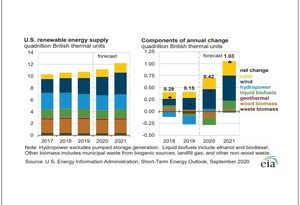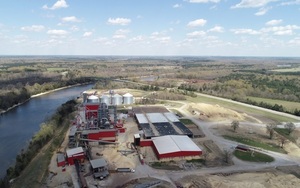Senate passes Growing Climate Solutions Act
Energy Disrupter
ADVERTISEMENT
The U.S. Senate on June 24 voted 92 to eight to pass the Growing Climate Solutions Act, which aims to break down barriers for farmers and foresters interested in participating in carbon markets so they can be rewarded for climate-smart practices.
Sens. Mike Braun, R-Ind.; Debbie Stabenow, D-Mich.; Lindsey Graham, R-S.C.; and Sheldon Whitehouse, D-R.I., on April 20 re-introduced the Growing Climate Solutions Act in the U.S. Senate. The bill passed out of the Senate Committee on Agriculture, Nutrition and Forestry on April 22. The legislation was previously introduced in June 2020 and addressed during a senate hearing later that month. Companion legislation is currently pending in the U.S. House of Representatives.
The bill would create a certification program at USDA to help solve technical entry barriers that prevent farmer and forest landowner participation in carbon credit markets. As part of that effort, the bill aims to establish a Greenhouse Gas Technical Assistance Provider and Third-Party Verifier Certification Program through which USDA will be able to provide transparency, legitimacy, and informal endorsement of third-party verifiers and technical service providers that help private landowners generate carbon credits through a variety of agriculture and forestry related practices.
The bill would also create an advisory council composed of agricultural exports, scientists, producers and others that advise the secretary of agriculture and ensure that the certification program remains relevant, credible, and responsive the needs of farmers, forest landowners, and carbon market participants. In addition, the bill instructs the USDA to produce a report to Congress to advise about further development of this policy area, including barriers to market entry, challenges raised by farmers and forest landowners, market performance, and suggestions on where the agency can make a positive contribution to the further adoption of voluntary carbon sequestration practices in agriculture and forestry.
Supporters of the Growing Climate Solutions Act include American Farm Bureau Federation, American Soybean Association, Archer Daniels Midland Co., Biotechnology Innovation Organization; Corn Refiners Association, Green Plains, National Alliance of Forest Owners, National Woodland Owners Association, National Corn Growers Association, National Farmers Union, Novozymes, Syngenta, Growth Energy, and National Biodiesel Board.
BIO issued a statement on June 24 cheering passage of the bill. “This bill is at the heart of everything we fight for at BIO and proves that climate action and economic growth can go hand in hand,” said Michelle McMurry-Heath, president and CEO of BIO. “It will encourage farmers and ranchers to use biotechnology breakthroughs to reduce emissions and deploy their land in the fight against climate change. It will bring greater value to the biobased economy and allow those across the biotech ecosystem—from farmers to renewable chemical developers and biobased manufacturers—to reliably demonstrate the true environmental benefit of carbon-reducing technologies in agriculture.
“Senators Mike Braun and Debbie Stabenow deserve praise for their leadership in advancing the bill through the Senate and we look forward to working with our companies and partners in the Food and Agriculture Climate Alliance (FACA) to encourage the House of Representatives to pass the Growing Climate Solutions Act and send it to President Biden’s desk to become law,” McMurry-Heath continued.
Growth Energy is also applauding the Senate’s passage of the legislation. “Farmers have already been making big investments in new technology to reduce their carbon emissions,” said Emily Skor, CEO of Growth Energy. “As reducing greenhouse gas emissions is top of mind for the biofuels industry, we are working with our ag partners to use sustainable farming practices to reduce emissions throughout the entire production lifecycle. The Growing Climate Solutions Act will rightly reward farmers nationwide for their efforts to reduce emissions.”
















